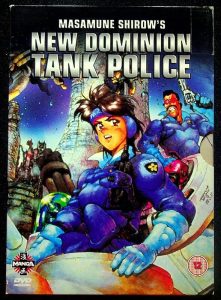As part of this prestigious position, as well as out of deep personal interest, I try to keep abreast of what’s going on in retro gaming. I follow topics with Google Alerts, I read Twitter (where a surprising amount of chatter on the topic takes place), I’m a member of several lovely Facebook groups, and most of all I try to talk to other hobbyists as often as possible. My home region, the Raleigh NC metro area, hosts two arcades and a slew of resale shops for old-school gear. It seems that retro gaming is only growing in popularity. The question echoes through the back halls of many minds, though: When does “retro” start and end?

Thankfully, the first part of that question is fairly easy to nail down. While the first true video games were developed in the 1950s and were simply electronic versions of popular board games, most gamers agree that the 1970s heralded the beginning of gaming’s golden age. In 1971, the first true coin-op arcade video game was finalized at Stanford. It was called Galaxy Game, and used vector displays along with a processor called the PDP-11. Once the floodgates opened, arcades became like roller rinks or discos; everyone wanted to go and there was plenty of fun to be had. Pong came just a year after Galaxy Game, and was released as a dedicated console soon afterward. The basis was already laid for a burgeoning new industry. Japan, whose electronics were quickly becoming near-magical in terms of innovation, took note. The world was falling in love with video games.

The second half of our quandary is a real head-scratcher, and is often a topic of spirited debate among the faithful. One popular theory is that “retro” ends around 1995. During this year, Sony’s first PlayStation console began to deflate from its peak while other fifth-generation consoles flopped in what became a mini-version of 1983’s flooded market. 1995-96 was the era of the Saturn, the Virtual Boy, the 3DO, and the Jaguar. This miniature singularity represents a symbolic death for the era as far as many gamers are concerned.

Another popular idea places the cutoff point around the late nineties. This pivots around two things: the huge amount of love many console fans have for the Dreamcast despite its summary commercial failure (myself included), and the popular idea that the late 90s were an overall cultural “changing of the guard.” The “real” 90s were over, and the 80s aesthetic was pretty dead; Everything was focused on the modern and the new for quite some time right around the beginning of ’99.

A third opinion, held by a growing minority, is that retro is entirely relative to the individual. While this may be a less widely held belief, it may well be the most realistic. After all, isn’t individual experience subjective? I never saw 1982; I wasn’t born yet. 1996 was part of someone else’s modern era, but to me, it was the apex of my childhood. It’s food for thought, but it often fails to satisfy the hard-and-fast VG fans out there who like to fit things into neat rows. And nothing against them… my D&D bookshelf as well as my ROM library are testament to my appreciation for order.
If you’d like to weigh in on this and other topics, please join us over at NRW Gaming’s Facebook page. We welcome discussion, comment, and even friendly debate in the comments sections of our posts. Tell us what you think “retro” means when it comes to cartridges and discs. Is there a cutoff point, or is it all in the eye of the beholder? Time, after all, doesn’t stop… and for the time being, neither do gamers!



